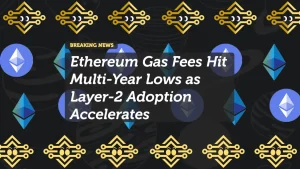
Vitalik Buterin Reveals Kohaku: A New Privacy Framework for Ethereum
Ethereum co-founder Vitalik Buterin has announced Kohaku, a new suite of privacy-enhancing tools designed to bring robust, modular, and compliant privacy functionality to the Ethereum ecosystem. Kohaku aims to solve one of Ethereum’s longest-standing challenges: how to provide meaningful privacy without sacrificing security, scalability, or regulatory alignment.
Described as a “privacy-preserving cryptographic framework”, Kohaku introduces a set of primitives and tools that developers can integrate directly into dApps, wallets, rollups, and user workflows.
Why Ethereum Needs Kohaku
Ethereum’s transparent ledger is both a strength and a vulnerability:
- Every transaction is permanently visible
- User wallets can be easily linked to identity
- DeFi activity is traceable
- Institutions often require privacy for compliance
Vitalik has repeatedly emphasized that privacy is essential for Ethereum’s long-term viability, especially as the network grows into a global settlement layer.
Kohaku is designed to fill this gap.
What Is Kohaku?
A Modular Privacy Toolkit for Ethereum
Kohaku is not a single protocol — it’s a framework. It includes:
✔ Privacy-Preserving Transaction Models
Integrates zero-knowledge cryptography (including zk-SNARKs) to hide sender/receiver details while retaining auditability.
✔ Compliance-Aware Privacy Layers
Allows optional disclosures or regulatory proofs without revealing full transaction history.
✔ Stealth Address Mechanisms
Inspired by stealth addresses, enabling private payments that are unlinkable on-chain.
✔ Identity-Selective Disclosure Tools
For private login, credential checks, and KYC-friendly workflows.
✔ Rollup Compatibility
Optimized to work with Ethereum L2s, including zkRollups and optimistic rollups.
✔ Auditability for Institutions
Maintains user privacy while allowing cryptographic proofs of legitimacy.
Why Kohaku Stands Out
Unlike older privacy systems — such as Tornado Cash, which faced regulatory issues — Kohaku is explicitly designed to be:
• Compliant
Regulators can be shown cryptographic proofs without breaking user privacy.
• Modular
Developers can integrate only the pieces they need.
• Transparent
Auditable cryptographic guarantees reduce misuse risk.
• Future-Proof
Built with long-term resistance to surveillance and potential quantum threats.
Vitalik calls it a “privacy system that balances user protection with legal clarity.”
Who Will Use Kohaku?
The framework is built for:
- DeFi platforms needing private swaps or private position data
- Wallets (MetaMask, Rainbow, Coinbase Wallet) seeking privacy add-ons
- Enterprises and institutions conducting private on-chain operations
- Rollups improving privacy defaults
- Identity and social dApps adding selective disclosure
- Payments platforms enabling private transfers
Developers can begin integrating Kohaku’s tools immediately through open-source repositories.
Privacy Without Repeating Tornado Cash Mistakes
Ethereum’s biggest privacy blow happened when Tornado Cash was sanctioned for enabling illicit mixing.
Vitalik structured Kohaku specifically to avoid these issues:
- No “black box” mixer design
- Strong cryptographic auditability
- Optional compliance proofs
- No pooled anonymity sets for criminals to exploit
Kohaku aims to deliver privacy that regulators can understand — and possibly accept.
What It Means for Ethereum’s Future
Kohaku signals a major push toward “practical privacy” — something Ethereum has lacked since launch.
If widely adopted, Kohaku could:
- Transform private payments
- Accelerate institutional adoption
- Protect user financial data
- Enable private DeFi positions
- Improve wallet anonymity
- Strengthen Ethereum vs Monero, Zcash, and privacy L1s
This could mark the beginning of Ethereum becoming a fully private, yet fully compliant, global economic infrastructure.
Conclusion
Vitalik Buterin’s Kohaku could become one of the most important additions to Ethereum since the shift to proof-of-stake. It bridges privacy, compliance, and usability in a way the network has struggled to achieve for years.
Ethereum’s future is not just scalable — it may finally become private.
















